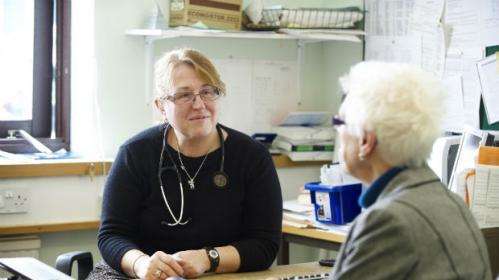The breast cancer drug trastuzumab emtansine (also known as Kadcyla) will not be made routinely available on the NHS following a failure to reach an agreement on price between the National Institute for Health and Care Excellence (NICE) and the drug's manufacturer, Roche.
NICE criticised the pharmaceutical company over a failure to make the drug more affordable, stating that the high price of Kadcyla makes it "impossible" to recommend for widespread use in the NHS.
The drug is licensed to treat breast cancer patients with a form of the disease known as HER2-positive breast cancer, after it has spread to other parts of the body.
In 2012, results of a clinical trial showed that the treatment can extend the lives of such patients by around six months.
It can also be used if the patient's tumour cannot be surgically removed, or if they have stopped responding to initial treatments.
The drug is currently available in England via the Cancer Drugs Fund.
But in final draft guidance on the drug, which costs around £90,000 per patient at its full price, NICE stated that it is too expensive to recommend for widespread use in the health service.
Current guidance states that NICE will give special consideration to drugs that extend life by between 3 and 18 months, but only for those that cost less than £50,000.
In a statement the NHS financial watchdog said it was "disappointed" that Roche had taken the decision not to offer the drug at a lower price.
This sentiment was echoed by Cancer Research UK's head of policy development, Emma Greenwood who said: "We're disappointed that Roche and NICE haven't been able to come to an agreement that would make Kadcyla affordable for routine use on the NHS, despite evidence it could benefit patients with certain types of advanced breast cancer.
"Doctors who believe that their patients may benefit from Kadcyla can apply for this drug through the Cancer Drug Fund in England and individual funding requests in the rest of the UK."
Roche said that it had offered to cut the price of the drug and will be appealing against NICE's decision.
But NICE chief executive Sir Andrew Dillon said that the proposed discount would still have made it difficult to approve the treatment.
"Although Roche proposed a discount to the full list price of Kadcyla, it made little difference to its value for money, leaving it well above the top of our specially-extended range of cost-effectiveness for cancer drugs.
"We are really disappointed that Roche were not able to demonstrate more flexibility to help us make a positive recommendation. The company is well aware that we could not have recommended Kadcyla at the price it proposed."
Provided by Cancer Research UK



















